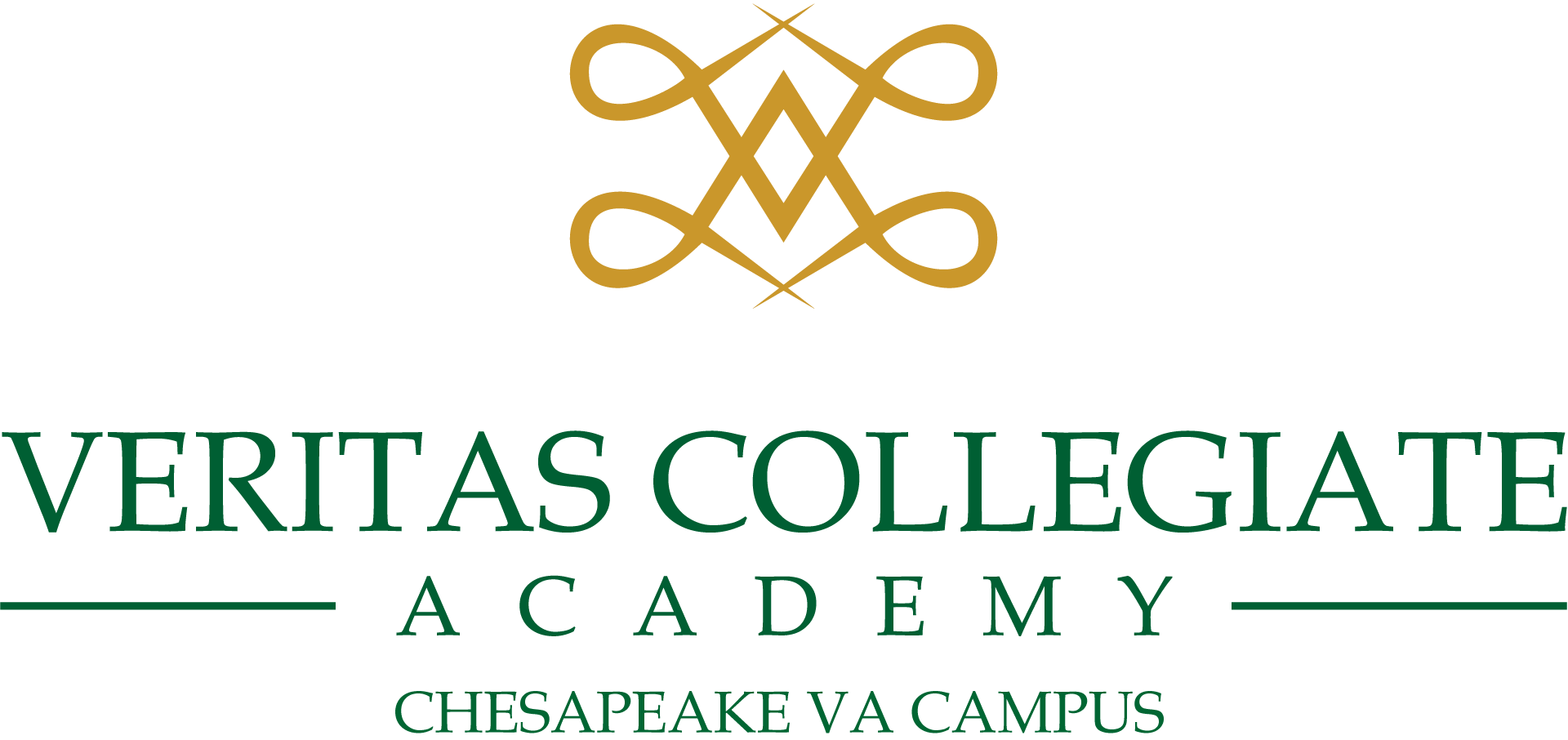Magistra Melinda Allen is a Latin teacher and an educator with substantial experience teaching students of many ages. With nine years of experience teaching Latin, Melinda is also one of Veritas Collegiate Academy’s most established and well-loved teachers.
I have limited background in the realm of classical education, so hearing my students talk about Latin class was both surprising and exciting. Spanish and French were the only languages offered in my high school, and a ‘dead’ language like Latin just seemed like a vestige from a far-off time. Cool, sure, but useful?
I wasn’t convinced – so I cornered Melinda after school one day since I had been at Veritas only for a few months and begged to know: why Latin?
When Melinda joined the Veritas family in 2009, she and her husband had been teaching Latin to their children at home with a classical homeschool curriculum. While teaching her own children, Melinda fell in love with the subject. At Veritas, Melinda has been able to build the program from the beginning.
Latin is all about progression – something on which the wider classical model of education is firmly planted. Each class builds on the one before it. Omnibus, for example, is structured so that students learn many ancient texts in seventh grade and then coalesce all the ancient history and literature by the time they are seniors.
The classical model is based upon students retaining more information while young, and then learning to think critically in later subject.
Also, Latin holds a hallowed place in the classical curriculum because of its deep-rooted history, culture, and tradition. Students taking Latin do not just learn how to translate texts – they learn about the history in which the text was written. As they study Latin and examine ancient Roman writings, students are also studying the thoughts of the ancient Romans.
According to Melinda, studying Latin helps students learn how to answer big questions like, ‘Where did we come from? How did we get there? How does what we are learning today shed light on where we have been in the past?’
In Latin class, the kids analyze and discuss ancient people and stories. There is a connection to the language, history, and geography that students experience when they read Horace, Virgil, and other ancient Roman texts that illuminate the culture of the past for the students of the present.
Like a true teacher with a heart for the classical model, Melinda seems to love the whole process of learning: working hard at understanding a subject like Latin and eventually finding joy in mastering it. When her students eventually have that ‘lightbulb moment’ and realize their labors weren’t in vain, they are satisfied and proud of their accomplishment.
So, is this Melinda’s favorite part of teaching? No. “I just really love the kids,” she says with a smile, while her Wheelock’s Latin Grammar textbook rests on the desk in front of her. Melinda speaks about her students and her profession with such fervor.
After nine years of watching kids labor over tough texts and translate irregular verbs, she says that her favorite part of education is seeing kids learn to engage in academic struggles and then reap the fruits of their labor.
The value of learning Latin cannot be overstated. According to Melinda, “Latin offers students the ability to understand their own language more fully and to read at higher levels with greater ease. If they go on to study anything, particularly science or medicine, they’ll be so thankful for their Latin base.”
Melinda recalled a Veritas student several years ago whose mother was attending medical school while her daughter was taking Latin with Melinda. The student ended up helping her mother study for her medical vocabulary quizzes. Even without knowing complicated medical vocabulary, the student could determine the meaning of the words by identifying their Latin root.
Additionally, Latin is the root of most foreign languages; thus, it is vital to understanding other languages, particularly Romance languages like Spanish, Italian and French. And Latin increases comprehension of English and understanding complicated science-based terminology.
After talking with Melinda, hearing feedback from past and current students, and learning about the long-term value of the language, the answer to my original inquiry – why Latin? - becomes increasingly clear. In fact, all we must do is look at our historical, cultural, and linguistic roots and see common links in the Roman world.
Latin paves the way for students to learn other Romance languages, study ancient Roman culture, excel in sciences, and value the time and effort it takes to achieve excellence in a subject. I have to say, I’m convinced. Learn Latin, and teach it to your kids.


.png?width=1920&name=VCA%20VA%20Logo%20White%20PNG%20(1).png)